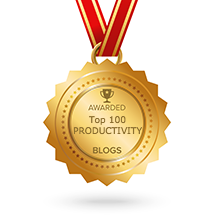- Goal Setting – Jointly set goals for the year
with employees. Employees will have
a greater commitment to goals they help to create. Many managers use the SMART system of
goal setting which includes a review for Specific, Measurable,
Action Oriented, Realistic and Time Bound.
- Key Competencies – Identify key competencies for your
employee’s position with examples within each rating category. You should be able to answer the
questions “how do I earn a superior rating in this category?” or “how do I
avoid receiving a needs improvement rating next year in this category?”
- Track Progress - It is critical to capture
information throughout the whole review period. Two options to consider are the calendar
approach and critical incident. In
the calendar approach, the manager documents instances on the day they
occur so when review time approaches, the manager simply reviews every day
of their calendar. In critical
incident, a manager creates a document for every employee with a line down
the center and records instances both positive and negative. These comments can then be transferred to
the final review form.
- Provide Feedback – It is not enough to track progress, it needs to
be communicated to be effective. Ongoing coaching provides employees with
timely feedback on what the employee is doing well, progress toward
achieving goals, and any areas where improvement is needed. Frequent feedback gives the employee time
to correct performance problems before they become severe.
- Review Discussion – In discussing the final appraisal it is a good
idea to ask the employee to also complete a self-appraisal. Start the discussion with the employee’s
opinion and then clarify any discrepancies with your review ratings.
- Future Development – This post-review phase helps ensure an on-going
productive and competent workforce through training and development plans
that help employees improve their current performance and achieve long-term
career goals. It ends the review
discussion focusing on a positive future as opposed to the past year
performance which cannot change.
Nothing New on Performance Reviews
This is a catchy
little phrase I like to use when I conduct performance review workshops: “Nothing
New on the Performance Review”. So what
does this mean for you and your employees?
Performance
reviews should be a summary of performance throughout the review period which
assumes that managers and employees communicate about goal accomplishments,
productivity statistics, and other achievements and misses on an ongoing
basis.
Many
employees dread the review discussion because they have received an unhappy surprise
on how their manager rated their performance in the past. This shows a disconnection between the
expectations the employee is operating under and how the manager sees
performance. Reviews should not be an
unhappy surprise for employees or dreaded by managers..
Here is how
to operate under the “nothing new on performance review” philosophy:
By seeing the
performance review process as an ongoing process instead of a once a year
event, managers will be able to embrace the “nothing new on the performance
review” philosophy and employees will have greater job satisfaction with open
dialog throughout the year that lets them know how they are progressing.
Labels:
goals,
performance
|
Bookmark this post:
|
|
Subscribe to:
Post Comments (Atom)












 This work is licensed under a
This work is licensed under a
No comments:
Post a Comment